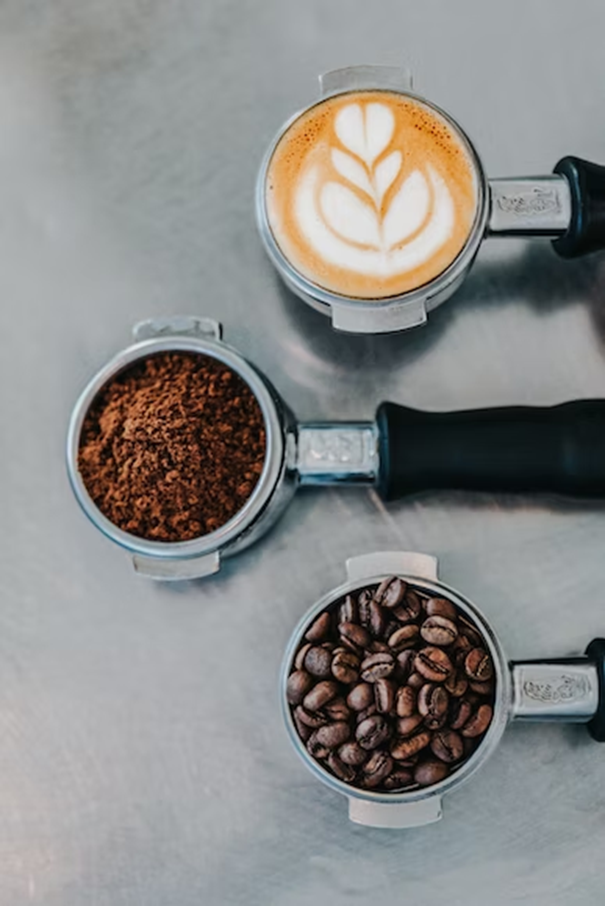Are you a coffee lover? Or perhaps just enjoy an occasional cup? Either way, there’s no denying the fabulous smell and taste of freshly brewed java. But did you know that drinking (the right amount of) coffee can also be good for your health? It's true – regular consumption of this delightful beverage can not only put a spring in your step, but may provide numerous health benefits too. So pour yourself an enjoyable cup or two each day, sit back with your favorite mug or tumbler and read on to discover how caffeine-free (or low amounts) can become part of a healthy lifestyle.
Health benefits of coffee
For many of us, coffee is a staple part of our daily morning routine. We drink it to kickstart our day, keep us alert and awake, and even to socialize with friends and family. However, beyond its delicious taste and comforting aroma, coffee has numerous health benefits that are worth considering. Studies have shown that drinking coffee in moderation can boost your energy levels, alertness, and focus, making it the perfect pick-me-up during a long day or an afternoon slump. Additionally, coffee is rich in antioxidants and has been linked to a lower risk of several diseases, such as Parkinson's, Alzheimer's, and liver cancer. However, not every coffee is created equal. Quality coffee beans, such as Maui Coffee, are packed with essential vitamins and minerals that may boost your overall health. So the next time you pour yourself a cup of coffee, remember that you're not just indulging in a tasty beverage, but also giving your body a delightful health boost!
Its effects on cardiovascular health, diabetes, mortality rates and more
Recent research has linked regular coffee consumption to a wide variety of health benefits, particularly when it comes to cardiovascular health. Studies have shown that drinking coffee can lower your risk of developing cardiovascular disease, stroke, and heart failure, among other conditions. But that's not all – coffee has also been found to lower your risk of developing type 2 diabetes and certain types of cancer. And if that's not enough to convince you, some studies have even suggested that regular coffee consumption may reduce your risk of premature death. So go ahead and pour yourself another cup – your health may thank you for it.
The importance of moderation when it comes to coffee consumption
Like with many good things, too much of a good thing can be harmful. Consuming too much of the delicious drink can lead to negative side effects, including jitters, anxiety, and even heart issues. That's why moderation is key when it comes to coffee consumption. By drinking it in moderation, we can still enjoy the countless benefits of coffee without harming our bodies in the process. So, the next time you reach for another cup of Joe, remember to do so in moderation!
What an appropriate amount of daily coffee consumption looks like
While some may be able to savor several cups of joe each day without any negative effects, others may experience jitters, anxiety, and sleep disturbances from just one cup. Determining your own sensitivity to caffeine can help guide you towards an appropriate amount of daily coffee consumption. Remember, moderation is key and it's always important to listen to your body's signals. So, whether you're a coffee fanatic or just enjoy a cup every once in a while, it's crucial to find the right balance that works for you.
Ways to make coffee healthier
One easy way is to simply add a splash of milk or non-dairy milk to your cup. This will give your coffee a smooth, creamy texture without adding too many extra calories. Another option is to experiment with different types of sweeteners. Instead of using refined sugar, try natural alternatives like honey or maple syrup. Not only do they taste great, but they also bring a host of health benefits to the table. So why settle for a lackluster cup of coffee when there are so many simple ways to make it tastier and healthier?
Steps to reduce coffee intake without suffering withdrawal symptoms
Are you looking to reduce your coffee intake without feeling the dreaded withdrawal symptoms? You're not alone. Many people find it difficult to cut back on caffeine without experiencing headaches, fatigue, and other unpleasant side effects. Fortunately, there are steps you can take to ease the transition. First, consider gradually reducing your intake over time. Try switching to half-caff or decaf coffee, or replacing your morning brew with a non-caffeinated beverage. Additionally, make sure you are getting enough sleep, eating a balanced diet, and staying hydrated. These healthy habits can help alleviate any discomfort you may feel as you cut back on caffeine. With a little patience and determination, you can successfully kick your coffee habit without suffering withdrawal symptoms.
From this blog post, we know that coffee can have many health benefits when consumed in the right amounts. You don't have to be a coffee connoisseur to get the most out of your cup of coffee. This means keeping an eye on your daily intake, researching different types of sweeteners and milk or cream you might use, and being aware of individual sensitivities to caffeine. There are real health risks if you’re consuming too much coffee – so take some time to understand your own body and figure out what works for you. Even choosing your coffee beans carefully can make a big difference: organic beans will cost a bit more, but they won't contain pesticides that could compound any positive effects it may have on your body. Ultimately, when you equip yourself with knowledge about the right amount of coffee consumption for you personally - you can much better enjoy the many benefits associated with this popular drink!




















COMMENTS